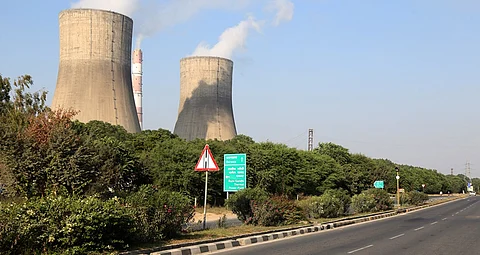

Civil society members have raised a number of objections in response to a recent notification issued by the Union Ministry of Environment, Forests and Climate Change (MoEF&CC) to 39 industries, underlining ‘ease of doing business’ over critical environmental protection, public health and the rights of people and communities.
The National Alliance for Climate and Ecological Justice (NACEJ), a pan-India initiative of the National Alliance of People’s Movements (NAPM) including activists, ecologists, climate scientists, environmental researchers and lawyers, has sent a letter objecting to the notification of November 12, 2024, exempting the requirements of compliance to air and water pollution prevention and control.
Thirty-nine industries have sought environmental clearances through the notification and are now classified as ‘white industries’.
The letter stated that the MoEF&CC has compromised the safeguards of environmental laws by granting the necessary clearances.
“The lifting of consent requirements for industries with environmental clearances is a direct contradiction to the foundational objectives of the Air Act and Water Act, which were enacted to protect public health and ensure environmental safety and sustainability,” the letter said.
It added that the state pollution control boards (SPCBs) play a crucial role in holding industries accountable for polluting the environment. Diluting the requirements of renewal of Consents to Operate and Consent to Establish removes the mandate to routinely assess industrial compliance.
The members pointed out that it is misleading and hazardous to classify industries such as fly ash bricks/block manufacturing as ‘white industries’, allowing them exemptions from environmental accountability.
Fly ash, a byproduct of coal combustion, is known to contain toxic heavy metals such as arsenic, lead, and mercury. Improper handling and disposal of fly ash can result in severe air and water contamination, posing health hazards to local communities, the letter said.
“The complete exemption from obtaining consents and subsequent monitoring by Pollution Control Boards further undermines the integrity and efficacy of the regulatory framework,” it added.
The members further highlighted that the provisions under the Water Act and the Air Act do not exempt industries entirely to obtain Consents to Establish or Operate.
The notification points out a substantive amendment of the mentioned Acts which have to undergo legislative process.
“The issuance of these notifications bypasses the required constitutional and legal procedures, thus rendering them potentially ultra vires and open to judicial scrutiny. By weakening the mandate of SPCBs, the Notifications are also clearly in violation of the principles of federalism, laid down in the constitution,” the members said.
The letter said the decision violates democratic norms and highlighted these major changes having overarching impacts on the national environment policy and the public’s right to a clean and healthy environment took place without taking the public in confidence through engagement or consultation.
Under the ‘ease of doing business’ and granting blanket exemptions, the ministry is violating its own mandate of not prioritising environmental and public health safety, especially when industrial pollution can have long-term human health and environmental consequences.
The letter said these steps do not align with India’s Nationally Determined Contributions (NDCs) under the Paris Agreement. While non-greenhouse gas (GHG) air pollutants such as particulate matter, SO2, and heavy metal particulates do not fall directly under India’s NDC targets, the increased industrial activity resulting from these exemptions will lead to higher GHG emissions.
“This undermines India’s commitment to reducing the emission intensity of its GDP. Through such ‘exemptions’, MoEF& CC is directly exacerbating the intensity of emissions, which would hinder India’s ability to meet its climate targets,” it said.
The NACEJ has demanded immediate withdrawal of the notification issued on November 12, 2024, exempting industries to comply with norms.
The civil society members have called for a detailed and independent study on potential environmental, social, and economic impacts that may be caused by granting exemptions to the said 39 industries. They demanded the study be made public.